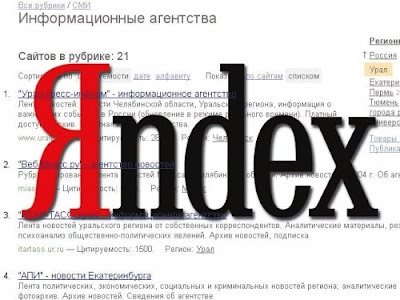Yandex stop your production of its shares

The biggest Russian search engine and Web portal «Yandex» postponed the primary placement of its shares (IPO) for an indefinite period. First public offering was planned for the third quarter of this year. Now the IPO could take place until May 2009 th, but only if the situation in financial markets will soon stabilize. IPO to be held in the U.S. high-tech NASDAQ stock market in Silicon Valley. June 20 «Yandex» even opened its own office in California - Yandex Laboratories, - headed by peremanil one of the top managers caught up in crisis Yahoo. Defectors Vish Mahidzhani was previously directed at Yahoo Search, and until then engaged in the same company Inktomi. Before the first half of 2009, Yandex Laboratories should have been a small representation of staff 10-12 staff. The official purpose of opening representative offices (in the version «Yandex») - to support the search quality. According to the guide, «Yandex» became a company of international standing, and it needs to maintain ...
